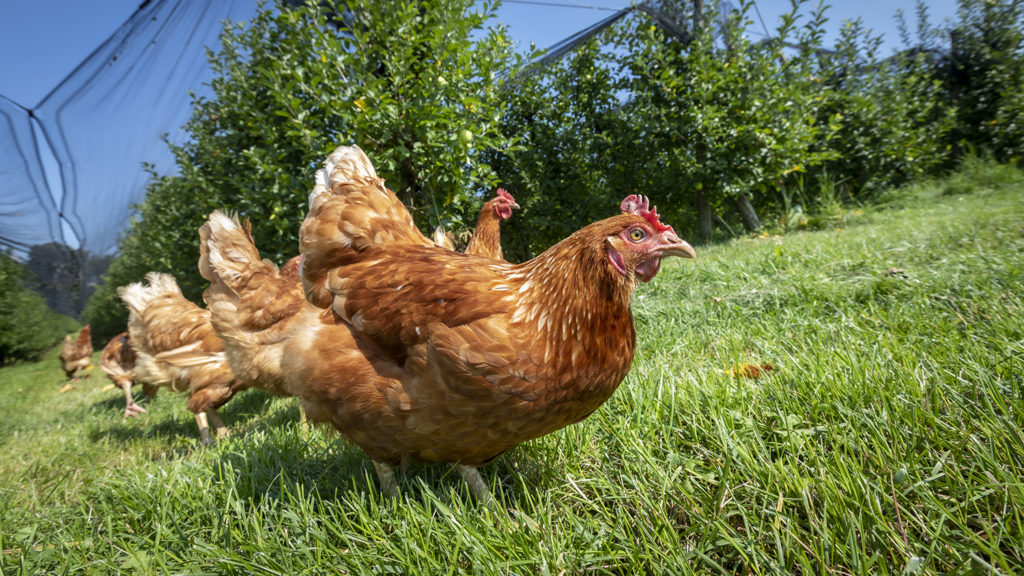From Embryo to Chick: Videos From the Livestock Conservancy and N.C. Cooperative Extension
go.ncsu.edu/readext?723088
en Español / em Português
El inglés es el idioma de control de esta página. En la medida en que haya algún conflicto entre la traducción al inglés y la traducción, el inglés prevalece.
Al hacer clic en el enlace de traducción se activa un servicio de traducción gratuito para convertir la página al español. Al igual que con cualquier traducción por Internet, la conversión no es sensible al contexto y puede que no traduzca el texto en su significado original. NC State Extension no garantiza la exactitud del texto traducido. Por favor, tenga en cuenta que algunas aplicaciones y/o servicios pueden no funcionar como se espera cuando se traducen.
Português
Inglês é o idioma de controle desta página. Na medida que haja algum conflito entre o texto original em Inglês e a tradução, o Inglês prevalece.
Ao clicar no link de tradução, um serviço gratuito de tradução será ativado para converter a página para o Português. Como em qualquer tradução pela internet, a conversão não é sensivel ao contexto e pode não ocorrer a tradução para o significado orginal. O serviço de Extensão da Carolina do Norte (NC State Extension) não garante a exatidão do texto traduzido. Por favor, observe que algumas funções ou serviços podem não funcionar como esperado após a tradução.
English
English is the controlling language of this page. To the extent there is any conflict between the English text and the translation, English controls.
Clicking on the translation link activates a free translation service to convert the page to Spanish. As with any Internet translation, the conversion is not context-sensitive and may not translate the text to its original meaning. NC State Extension does not guarantee the accuracy of the translated text. Please note that some applications and/or services may not function as expected when translated.
Collapse ▲Are you getting started with backyard or pastured poultry? Are you interested in heritage chicken breeds?
You’re in luck – The Livestock Conservancy and N.C. Cooperative Extension recently finished a video series designed to help you get your backyard heritage flock off on the right foot.
This summer, N.C. Cooperative Extension partnered with The Livestock Conservancy to create the From Embryo to Chick: A Cooperative Virtual Learning Experience video series.
Videos feature Victoria Brewer, Extension Agent for 4-H Youth Development, and Jeannette Beranger, Senior Program Manager for The Livestock Conservancy.
The series has 13 episodes, covering basic hygiene and getting chicks off to a great start.
1. Importance of Good Hand Washing (8:39)
2. Day 1 – Warming Up the Eggs (13:59)
3. Building an Eggs-Ray Viewer (10:53)
4. Playing Peekaboo (11:48)
5. Eggsploring the Egg (7:45)
6. Pick a Chick (15:37)
7. Building a Home “Tweet” Home (2:51)
8. A Visit to Jeannette’s Chicken Farm (5:38)
9. Eggsploring Careers (7:03)
10. Caring and Handling (7:03)
11. Counting the Chicks (6:59)
12. Chick Check-In with Jeannette (17:28)
13. Chick Check-In with Victoria (2:48)
The series is appropriate for adults and youth getting started with small poultry flocks.
What is The Livestock Conservancy?
The Livestock Conservancy is a nonprofit organized started in 1977 to “protect endangered livestock and poultry breeds from extinction.”
“The Livestock Conservancy works with farmers and ranchers, chefs, historians, consumers, and others across the nation to protect genetic diversity in agriculture. Just like there are heirloom seeds that need saving, the Conservancy works to protect Heritage breeds – for the security of our agricultural system.”
More about The Livestock Conservancy.
To learn more about The Livestock Conservancy, contact them online.
What’s a Heritage Breed?
“The Livestock Conservancy developed the term “Heritage breed” to help breeders of historic and endangered breeds of livestock market their animals.”
For more information about how they developed the term and to see the official Heritage breed definitions, visit their Heritage Breeds page.
If you have questions about pastured poultry, visit our Pastured Poultry Webinar Series page, or contact an area specialized agent for poultry or your county livestock agent.



